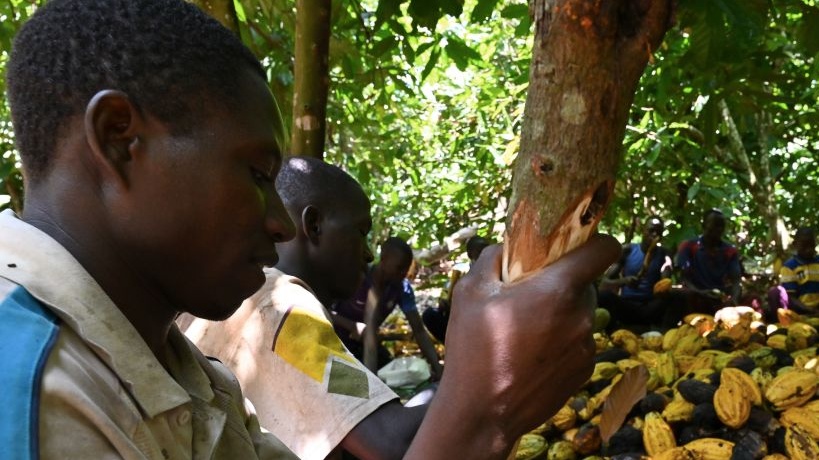A chocolate war between Ivory Coast and Hershey Co. has been resolved after the American chocolate company agreed to pay a government-levied $400-a-ton premium on cocoa.
Ivory Coast and Ghana, which produce a combined 70% of the world's cocoa, introduced the premium known as the Living Income Differential (LID) in July 2019 for the current season's sales as a means to combat farmer impoverishment in their countries. Ivorian and Ghanaian cocoa regulators said the LID aims "to improve the incomes of three million West African cocoa farmers."
During the current season, the two countries blamed the chocolate company for trying to avoid paying the LID when Hershey Co. allegedly purchased cocoa beans on an exchange, according to the Hindustan Times. According to the producers, Hershey's actions challenged the sustainability program, which the chocolate company boasts in the African countries, that addresses problems such as child labor abuses in the cocoa industry. Purchasing on an exchange makes it impossible to assure consumers that the beans were not harvested by children, the producers said. Following the allegations, Ivory Coast and Ghana each imposed a subsequent suspension on Nov. 30. Hershey Co. defended itself in its latest statement, saying it has been paying the premium, and it plans to continue to do so.
Upon coming to a resolution, Ivory Coast agreed to lift the suspension it had imposed on cocoa sustainability schemes run by Hershey Co., Reuters reported. Ivorian regulator, the Coffee, and Cocoa Council (CCC), then spoke to Hershey Co. representatives in a video meeting and promised to lift the suspension, according to Reuters. In a letter to the chocolate company following the meeting, the CCC said the agreement “follows your definitive commitment to pay the LID.”
According to NBC News, cocoa industry traders became suspicious last month when they noticed an unidentified source had purchased a large number of cocoa beans in the futures market, making the prices increase by more than 30%. The Ghana Cocoa Board, which pointed to Hershey Co. as the guilty party, addressed the company in a letter titled, "Abuse of the derivatives market to impoverish the West African farmer."
The cocoa producers accused Hershey of using "the exchange to take delivery of physical cocoa." Adding to their statement, the group said they "have observed with great concern the actions taken by your company on the New York terminal."
"This is a clear squeeze on the ICE US Exchange and a clear indication of your intent to avoid the payment of the Living Income Differential — LID," the letter stated.
While Ivory Coast has lifted its suspension, Ghana has yet to make a decision.
The cocoa harvest season officially opened in West Africa on October 3. According to Ghana Talks Business, Ghana's 2010 – 2011 crop season produced an unprecedented one million metric tons of cocoa. It has yet to match that season, and now, with the coronavirus making an impact across the globe, chocolate demand has been affected, making it even more difficult for Ivory Coast and Ghana to sell their beans.
